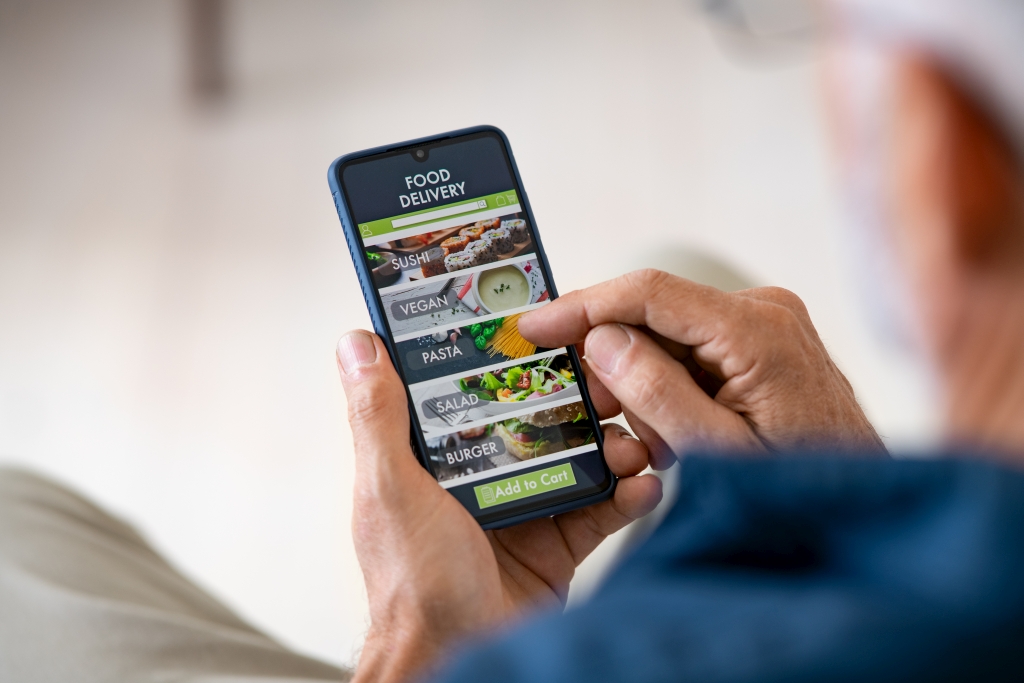Over the past five years the amount of money flowing into European food startups has tripled, jumping from investments of €538m in 2014 to investments of €1.6bn in 2019, according to data platform Forward Fooding.
While some start-ups want to revolutionize food production per se – from lab-grown cheese to 3D-printed steaks – most delve into food and how it finds its way to your plate, to put it short – home delivery food orders or platform-to-consumer delivery.
The ‘wars’ in food delivery across Europe
All across Europe, food delivery services are trying to get their finger in as many pies as possible, capitalizing on the ever-increasing consumer demand.
According to Deliverect.com, by 2023, platform-to-consumer delivery will be one of the leading categories in countries’ economies with revenues of €73 bn worldwide, with Europe accounting for €7 million of that number.
Europe’s top 5 countries in terms of platform-to-consumer revenue are the UK, Germany, France, Spain and Italy – and this supremacy is expected to last over the next 3 years at least.
In such a competitive landscape, for restaurants, it pays off to team up with multiple of these third-party delivery platforms in order to reach different audiences and market segments.
From a consumer point of view, the large variety of food delivery apps available is an advantage, as well, giving them a range of options, restaurant types and cuisines to choose from.
What will set businesses apart in the eyes of investors: environmental credentials
No matter the object of activity, food start-ups – including food home delivery services – are being assessed by investors also in accordance to their environmental credentials, online footprint and business growth.
Environmental scores are calculated using data about manufacturing processes, product, company policy and revenue. In this respect, Forward Fooding has released a very interesting and comprehensive ranking of food tech startups across the world.
This means that food delivery services will have to pay close attention to their own processes, as well as that of their partners – namely, horeca operators – to continue receiving funding.
Consumers want packaging that contains less plastic
According to an article from Open Access Government, European consumers are committed to paying more for reduced plastic packaging.
More than 3,000 respondents took part in a study conducted across Belgium, Germany, Poland and the United Kingdom, which sought to understand consumers’ attitudes and habits on packaging, recycling and waste management.
9 in 10 respondents answered they would choose food packaging that contains less plastic, even if they would have to pay a premium for such type of packaging.
In terms of packaging itself, plastic clearly emerges at the black sheep across Europe, cited by an average of 7 in 10 respondents – way more than the next most concerning issue, coffee capsules, mentioned by 6%.
Metal packaging (aluminum cans and trays etcetera) was a concern for 5% of respondents, and waterproof-coated packaging for liquids like milk and fruit juices for 4% of respondents.
One other piece of good news is that more than half of participants in the study say they sort and recycle more than they did five years ago – an average of 6 in 10 respondents.
BFG is committed to encouraging the use of packaging made from natural fibers, which is biodegradable and compostable in a safe and healthy manner for the environment and has released an eco-friendly food packaging range, consisting of bowls, plates, trays and hinged lid containers.
Find more about the range from here and contact us for more details about alternative sustainable packaging for your company’s needs!

